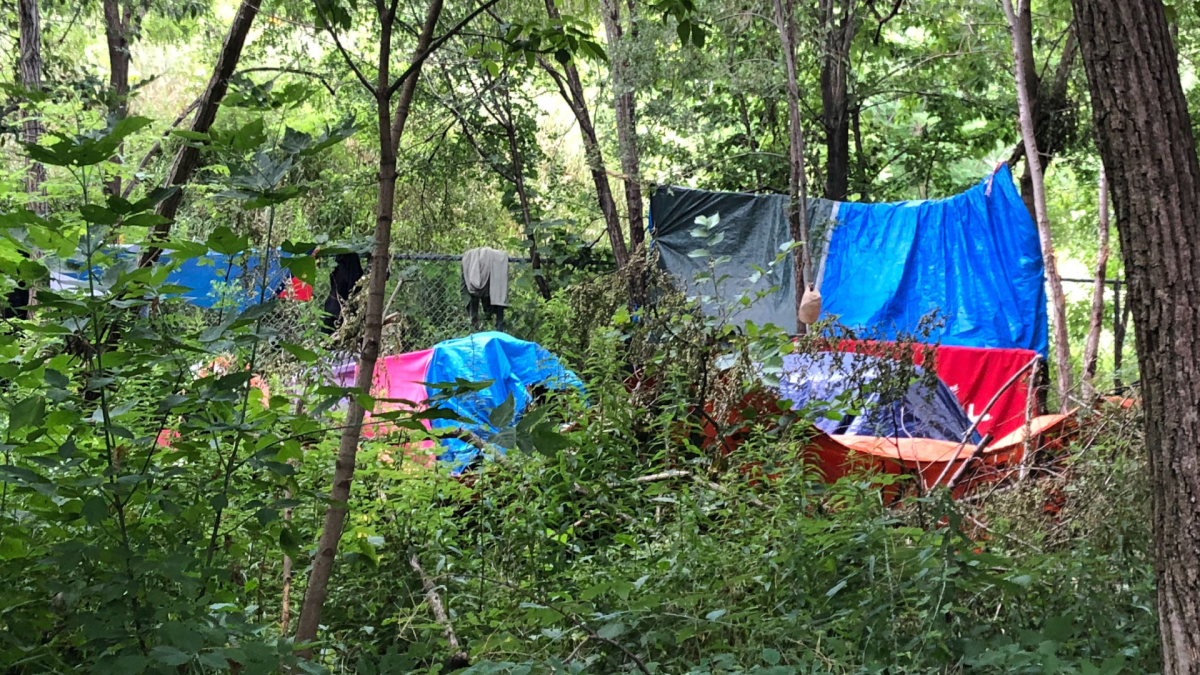Counsel representing homeless residents returned to a courtroom on Thursday seeking a permanent injunction to stop Hamilton from dismantling dozens of small encampments city officials claim are unsustainable.

The matter is now in the hands of Justice Andrew J. Goodman, who heard arguments on Thursday in the form of written testimony and legacy judgments connected to those who are destitute.
Before departing Goodman requested written submissions of what was essentially heard by Monday from both the city’s representatives and counsel arguing on behalf of homeless residents and their advocates.
During Thursday’s session, lawyer Michael Bordin laid out processes for the city’s current outreach programs and insisted that efforts to shelter and place residents in temporary and permanent housing do not cause “irreparable harm,” as suggested by homeless supporters.
At one juncture, counsel used a set of photos depicting damage done to city property to make it’s case arguing encampments propagate safety issues in addition to incurred costs for the general public related to security, waste removal and remediation.
Alleged damage to a Gage Park washroom in which copper pipes were stolen represented a small sample of the estimated $400,000 in additional costs the city incurred amid the pandemic related to encampments which damaged trees, grass and other permanent structures.
An affidavit from the city’s manager of parks, Kara Bunn, was one of the written filings which stated the encampments increased city maintenance costs through unauthorized use of electricity and calls to clean up discarded needles and drug paraphernalia.
Counsel also read affidavits from nearby residents who say they’ve experienced neighbourhood vandalism, defecation and witnessed mental health issues.
Bordin also attempted to debunk the applicants suggestion that moving residents from encampments to shelters put them at greater risk, particularly with exposure to COVID-19, by suggesting that trauma, drug overdoses and alcoholism are greater risks based on reports from city paramedics.
He also went on to argue that encampments create a “secondary shelter” system which “undermines” and draws money away from the city’s current sustainable housing program.

Get daily National news
However, counsel for the applicants suggested the city has not created any new shelter space for the homeless, citing recent dates in mid-October when the director of housing services stated the system didn’t have enough beds on a given night.
The representatives went on to say COVID “exasperated” the city’s homeless situation and that as uncomfortable as encampments are for those living in them it is an opportunity to evade “psychological harm.”
Wade Poziomka, co-counsel for HamSmart and Keeping Six, echoed those sentiments in an interview with 900 CHML’s Good Morning Hamilton said they’re seeking recognition that some homeless people have nowhere else to go.
“The solution for everybody is ultimately to eliminate encampments. The Hamilton Community Legal Clinic and their clients aren’t fighting to say we need to have permanent encampments in the city of Hamilton, they’re fighting to say that there’s no other option,” Poziomka said.
In a social media post on Wednesday, the clinic clarified what counsel are seeking from the justice which is not a ruling allowing encampments anywhere, but one that would allow it with conditions.
Those circumstances include groupings of six tents and setups in parks with a 50 metre distance rule in relation to playground, school, or childcare centre.
The groupings of six would also have to remain 200 metres from any other similar encampment grouping.
Just before Goodman closed the hearing on Thursday, city counsel Bordin left the justice with one more hypothetical characterizing the scope of the injunction being sought a very broad.
“Every single homeless person that the injunction sought can set up an encampment within’ the hearing of this matter,” said Bordin.
‘This is no determination of the threshold.”
Following the hearing, mayor Fred Eisenberger told Global news the “nub” of the issue is dealing with those in need of housing with “wraparound supports.”
The mayor says the city is seeking funding from the provincial government in the hopes of supporting such a scenario.
“It means that these individuals need two or three, either social workers or addiction assistance individuals or mental health professionals to help them through the day,” Eisenberger told 900 CHML’s Bill Kelly Show.
“And that’s that’s a particularly huge and onerous challenge.”
Goodman left no specific timeline for his ruling only telling the court he would share his ruling “as soon as reasonably possible.”
Until then, the city is prohibited from dismantling existing encampments under a previous decision.












Comments